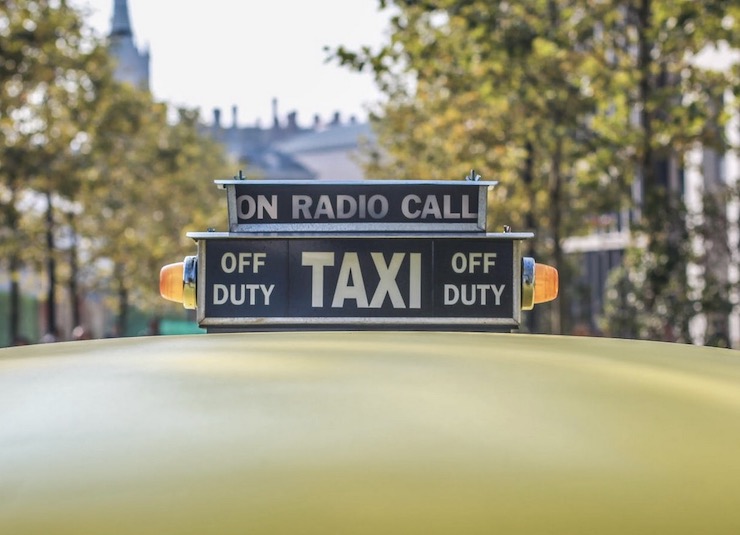
“Flying cars” and drone taxis may one day become the dominant mode of urban mass transit in the United States and abroad. But getting there will require more than the innovative technology designs and early stage prototypes developed by small California companies like Joby and Archer or by Volocopter and Lilium, Germany’s two flagships. Fully commercializing these state-of-the-art aircraft will depend upon the establishment of manufacturing plants that can efficiently mass produce large volumes of the vehicles at scale.
And in most cases, the small technology designers simply won’t have the capital or know-how to do the job. They’ll need the expertise – and the physical plant – of larger companies with a history of successful mass production and a strong business and investment stake in the expanding drone market.
In fact, most of the leading air taxi companies have already sought out and secured partnerships with some of the world’s most widely known and established automobile manufacturers – all of them household names. In some cases, these partnerships have evolved to the point where the larger companies have acquired a dominant share of their partners’ assets, placing them in a position to drive the commercialization process.
Here are three of the most important joint ventures between air taxi companies and major car manufacturers that could one day make the Jetsonian dream of flying cars a reality for millions of consumers.
Toyota and Joby
Joby first obtained significant investment capital – about $100 million – from Intel, JetBlue and Toyota back in 2018. That’s how Joby, founded 10 years earlier, moved out of stealth mode to begin developing its first prototypes. In 2020, Toyota led Joby’s Investment C round, pledging two thirds (about $400 million) of the $590 million received.
Since then, Toyota has shared its expertise in manufacturing, quality, and cost controls with Joby’s own engineers, and as the company’s leading external shareholder, has assumed a dominant role in planning for full-scale commercialization.
Earlier this year, the two companies agreed to formally integrate their production processes. Under the new arrangement, Toyota will manufacture all of Joby’s key eVTOL components before shipping the finished parts to Joby’s powertrain and electronics facility in San Carlos, California for final assembly. Joby will then ship the assembled aircraft to its own experimental production facility in nearby Marina to complete the eVTOL integration.
The Marina facility is designed to test production of Archer’s air taxi at low volumes. Once the possess is validated, Toyota can expand the scale to conduct mass production of the first vehicles by early 2025.
Stellantis and Archer
Stellantis, the global auto-making company that owns Jeep, Ram, Dodge,
and Chrysler, has had its eye on Silicon Valley-based Archer for some time.
But it wasn’t until six months ago that the company decided to take the plunge
with a major investment capital commitment, coupled with an agreement to
jointly produce Archer’s state-of-the-art drone taxi known as “Midnight.”
In March of this year, Stellantis broke ground on a 100-acre air taxi manufacturing site in a rural area located 35 miles southeast of Atlanta, Georgia. The company now foresees having the plant fully operational by mid-2024. The facility will initially turn out up to 650 air taxis per year but with additional room to expand annual output to 2,300, as needed.
Recently, Stellantis increased its shareholding stake in Archer through a succession of stock purchases on the open market. Last month, the car maker committed an additional $150 million in capital to Archer over the next two years, ahead of a planned 2025 service launch.
Suzuki and Skydrive
The Japanese auto manufacturer established a limited partnership with Sky Drive back in May 2022. The initial focus was on the development of technology R&D and on the establishment of new manufacturing and mass-production systems. Suzuki also assisted with the development of overseas markets, especially in India, for Skydrive’s compact two-seat drone taxi.
Under a new agreement reached earlier this year, SkyDrive will establish a 100% owned subsidiary to begin the initial stages of the manufacturing process. SkyDrive will utilize a plant owned by the Suzuki Group (in Shizuoka Prefecture) to move to larger scale production – in theory, by the spring of 2024. Suzuki has agreed to assist in all stages of preparation for production, including the recruitment and management of all personnel.
SkyDrive is the only company in Japan that has successfully conducted manned test flights of its drone taxis. The company’s cargo drones, which can carry payloads of up to 65 lbs., are already in active service at worksites in Japan, mainly in mountainous areas. With Suzuki’s help, SkyDrive hopes to showcase its air taxi service at the 2025 World Exposition in Osaka, Japan as a prelude to expanded service across Japan.
While all three of these joint ventures seem promising, long-term success is far from guaranteed. The FAA and other regulatory agencies still need to sign off on the final prototypes before full-scale production can begin. And one of the biggest unknowns is consumer demand. In the case of Joby and Archer, major commercial airlines and the US Air Force have committed to a small number of initial purchases. Whether passenger vehicles can become affordable in the general market beyond a narrow band of affluent consumers is still unclear. Scaling up production will likely remain an ongoing challenge. Thanks to these early strategic collaborations, a solid foundation for success has been laid.
|